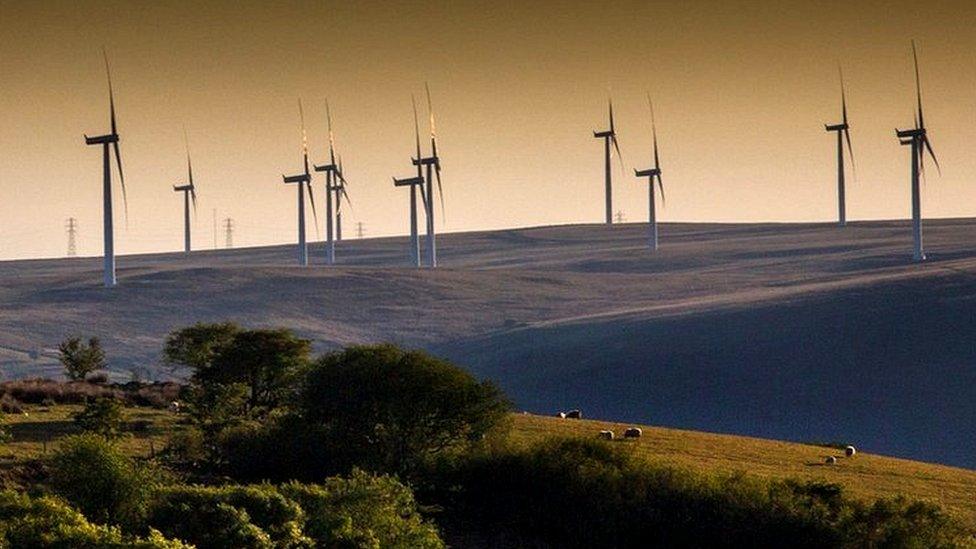Climate change: How recycled hair helps cut carbon
- Published
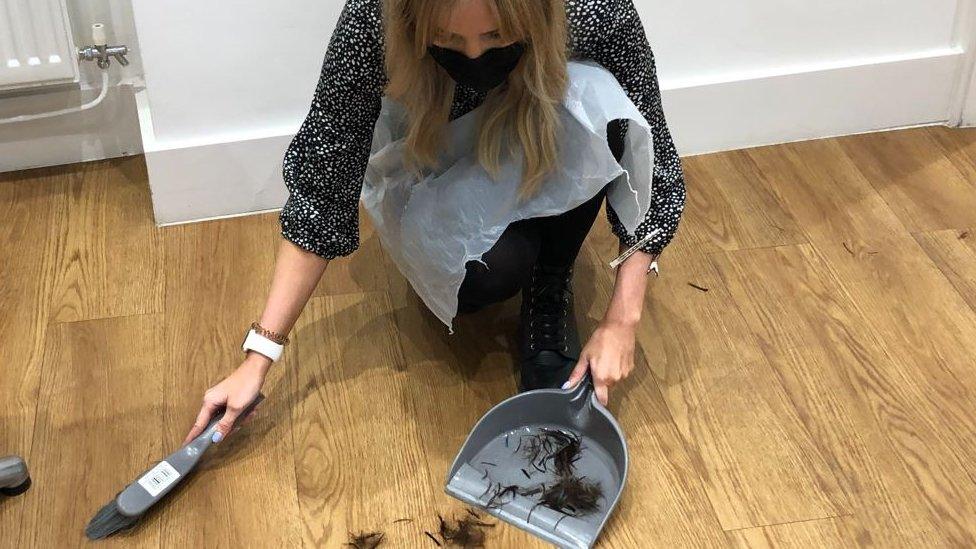
Hair can be made into devices that help soak up oil from water, says one salon
"It's easy to think that we are acting on our own, that we are just one drop in the ocean."
Climate warrior Grant Peisley is echoing what many feel: that making a change is like an impossible task.
But as world leaders talk in Glasgow at COP26, the major summit on climate change, people like Grant are doing little things which cumulatively make a big difference.
These range from a community garden, building green walls or recycling hair.
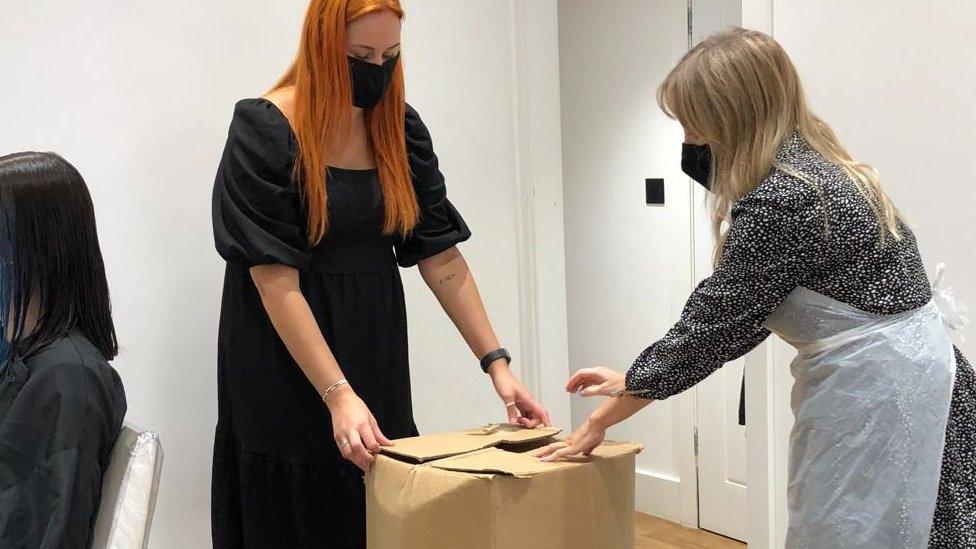
Did you know hair can be used to soak up oil spills in water?
Cardiff business Create Salon is using hair to tackle climate change.
It's recycled into "booms" designed to soak up oil from rivers, lakes and oceans.
Hair holds onto grease until it's washed, so, in theory, it can be used repeatedly.
Salon owner Kasey Perks said: "We are recycling up to 95% of our waste, a lot of it is hair.
"At the moment there are a lot of clients wanting big changes so there is a lot of hair being cut off."
'A lot of research'
The aim is to make their salon "sustainably led".
Ms Perks said: "If hair is not disposed of it can release a lot of greenhouse gases and a lot of the time it ends up in the rubbish bin in landfill and creates harmful greenhouse gases.
"When we knew we were going to start our own salon that was at the forefront of our business plan, so we did a lot of research."
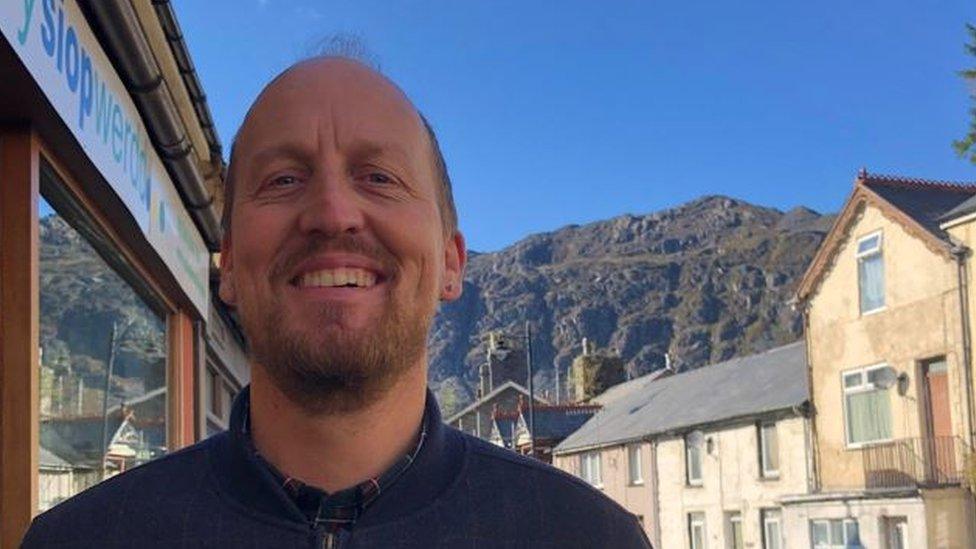
Grant Peisley said there was a local appetite to do more once they see it can be done
In Blaenau Ffestiniog, Gwynedd, a green wall has been planted on the high street.
Shops also put up posters to advertise what each business is doing to fight climate change, and encourage others.
Grant Peisley is from Datblygiadau Egni Gwledig (DEG), an organisation working to assist this.
He said: "We have groups that are doing all sorts of planting and rewilding. We've got cafes going without plastics, a no-plastic shop, and people are really interested in how they can support the local economy by buying locally and reducing carbon emissions in our produce."
'Really meaningful'
The aim is to build enthusiasm by demonstrating how individual actions make a difference.
"When we all come together, all these steps come together," he said.
"It's easy to think that we are acting on our own that we are just one drop in the ocean and the changes I make at home aren't going to make a difference, but what we are seeing here in our communities in north Wales is that there are lots of people taking lots of actions and all those actions are building up to be really meaningful.
"We need to engage everybody in the process of working against climate change and this is a great way to do it."
DEG wants to host climate assemblies in five locations across north Wales over the next two years.
"We will be able to hear from people about what they would like and what kind of actions they would like to see in their areas," he said.
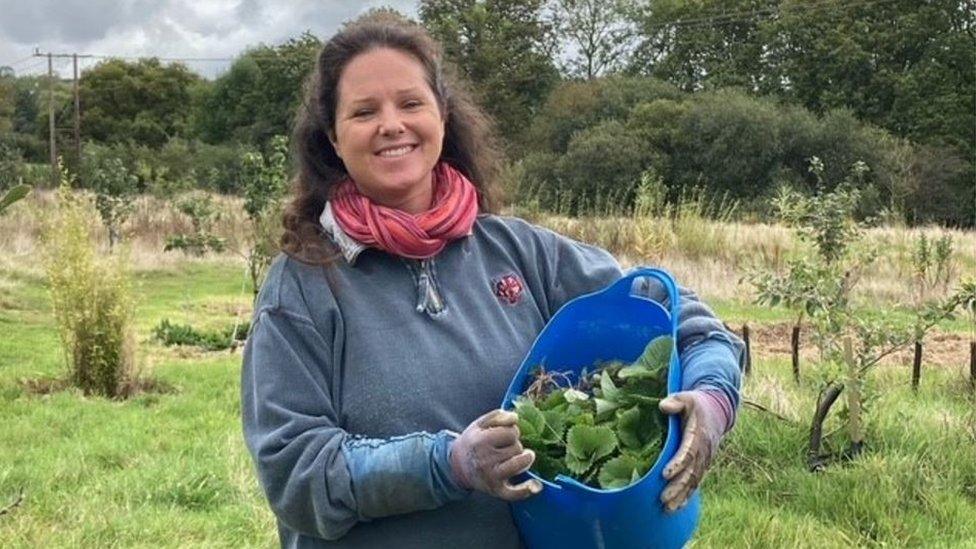
Raphaelle Fieldhouse said a community garden can open up opportunities to people who may not have access to space of their own to grow food
In an industrial estate in Cardigan, Ceredigion, Raphaelle Fieldhouse helps people plant trees in a forest community garden.
She said: "Everything is edible or helps the environment. It doesn't make sense to fly apples and chillies over from South Africa to Wales whilst they can grow well here.
"We're close to town and people can walk here, and it's important that the community grows its own food."

BLACK AND WELSH: Celebrate our multicultural nation; humour, pride and lived experience
HAYLEY PEARCE PODCAST : Tackling the issues that make your group chats go off

- Published27 October 2021
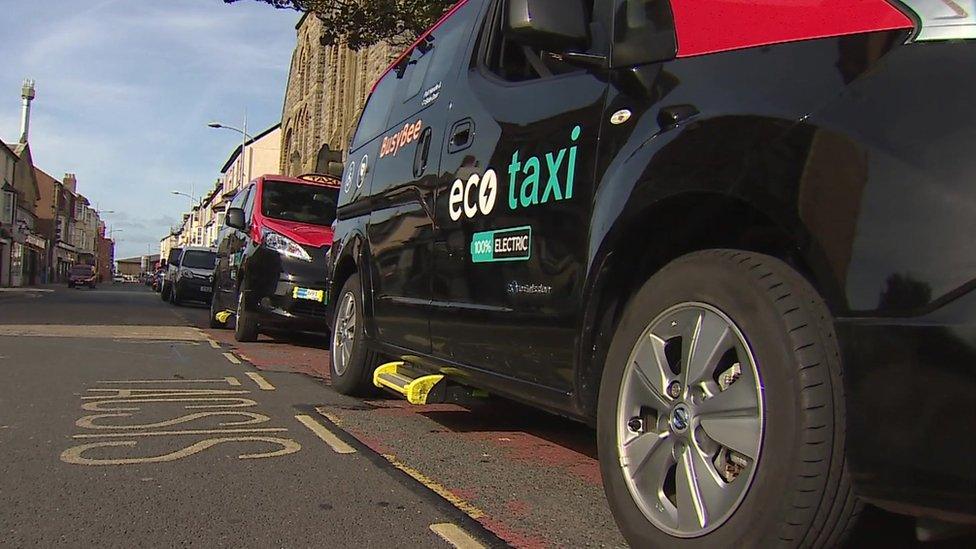
- Published25 October 2021
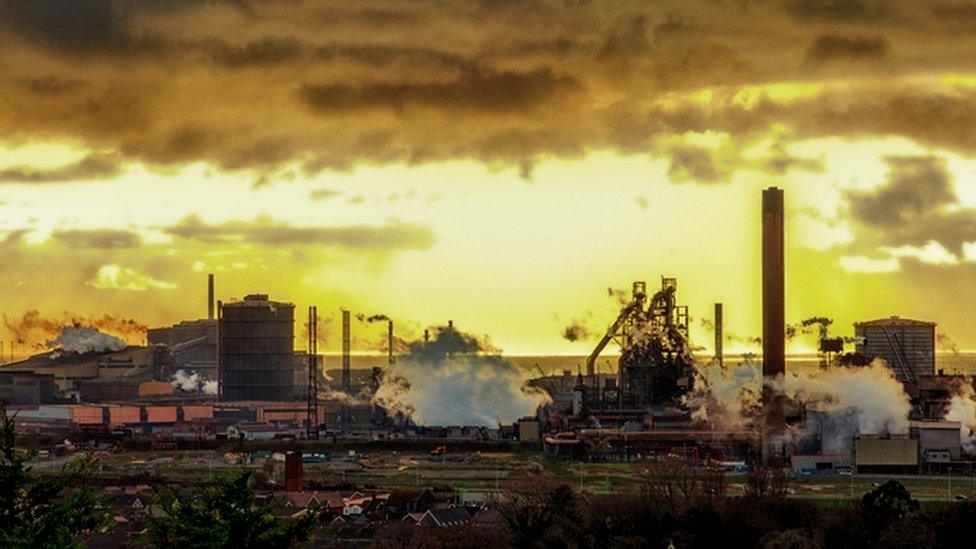
- Published24 October 2021
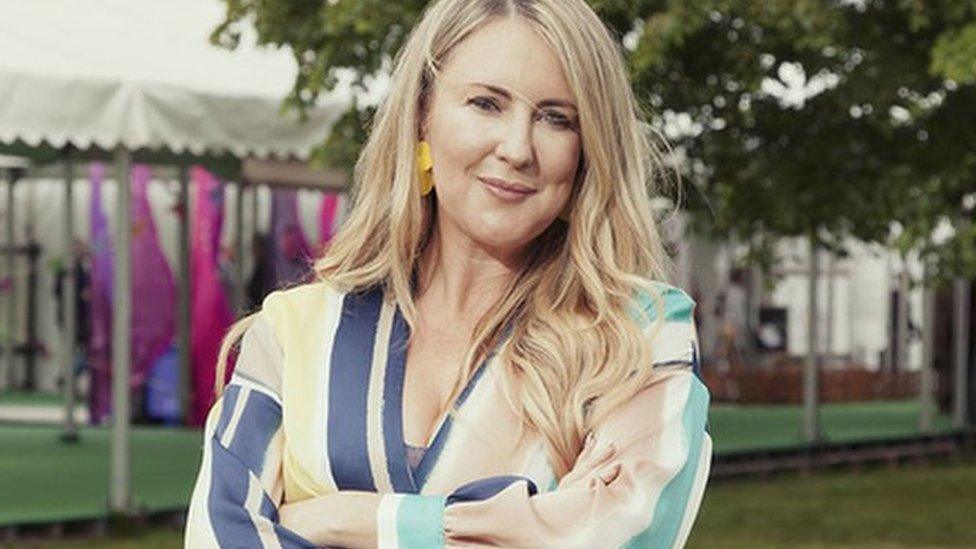
- Published1 October 2021
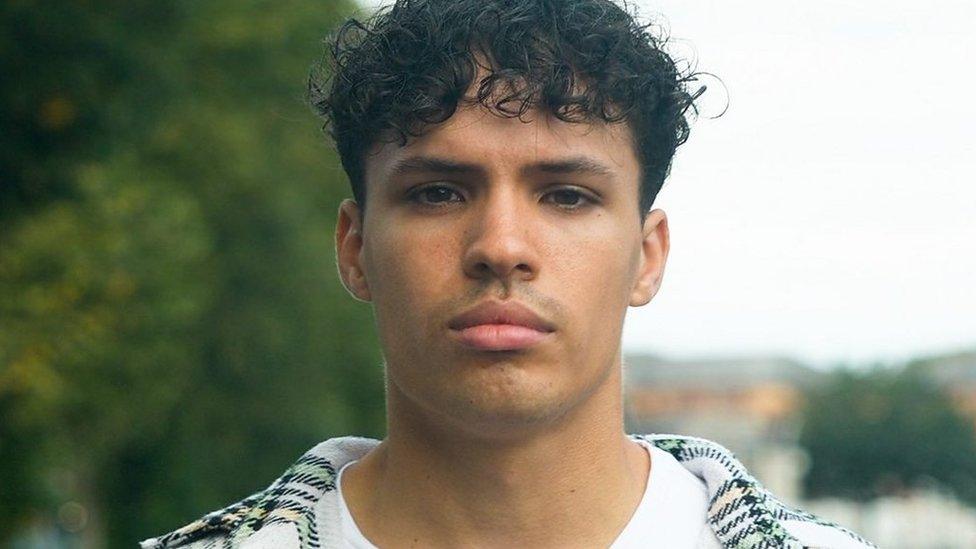
- Published25 October 2021
